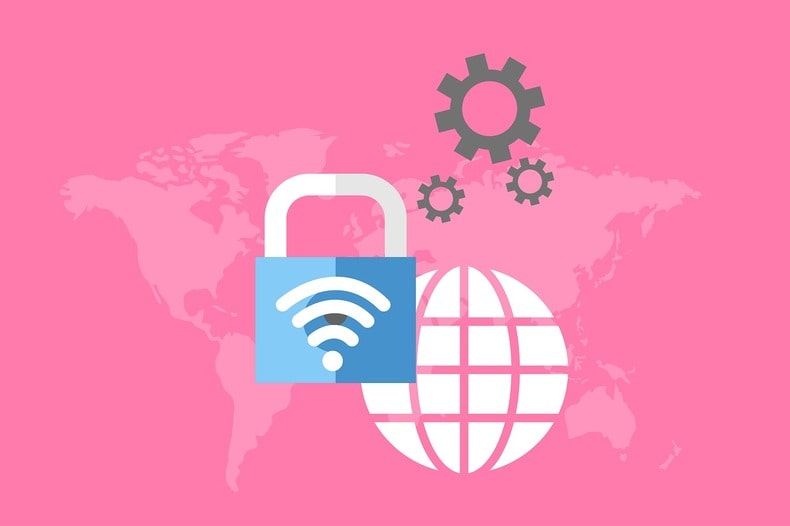Internet Safety Tips For Safe Web Surfing
Internet Safety or Cyber Safety is a general practice of following guidelines when using the Internet to ensure online safety & privacy protection. Unsafe browsing can lead to hackers stealing your personal information and using it against you.
Common examples include stealing bank or credit card information, health records, personal data like photos, sensitive data, and more.
Why is Internet Safety Important?
As of March 2021, there were more than 5.16 billion internet users worldwide according to the Statistics from Internet Advisor. That is more than half of the population of the world, children too young to use it are included. So taking your Internet safety casually can prove to be dangerous. For instance, entering your login details on spam or fake websites can lead to financial losses or even sensitive data leaks.
Internet safety is of prime importance to ensure all your data is safe and never reaches into the wrong hands.
Our 12 Internet Safety Tips to Follow Right Now
1. Keep your Web browsers up-to-date.
Browsers today are handling some of the most advanced web technologies in the world to display modern websites. However, hackers are constantly looking for any security loopholes present in the browsers that they can target to gain access to your sensitive information. It can include your banking details, browsing history, online purchases, medical history, and more.
Browser companies regularly push out updates to their products that provide security patches to detect any security vulnerabilities.
However, along with updating your browsers, you must also update all installed browser plug-ins, extensions, and any add-ons that are installed. These are some of the most common tools for cyber-criminals to enter your system.
2. Adjust your Privacy Settings
When was the last time you took out time to read a privacy policy-terms and conditions of any app or website you accept before use? Most of us blindly trust the Web company with the responsibility to handle our data safely.
But, most of the companies today are on the lookout for extracting maximum data from their users & using that for commercial purposes.
However, with rising awareness about data privacy, many organizations and apps nowadays provide options to limit their data collection. However, the catch is that you must reach out to the settings page on the app and change the default settings to more customized options as per your requirement.
Most of the leading browsers, email clients, search engines & social networking sites now have options to limit data collection for their users. It would be best if you used these to your advantage.
3. Use Secure Passwords
You might be surprised that an estimated 81% of data breaches globally are due to poor password security. Apart from that, weak passwords were among the most common Cybersecurity vulnerabilities that caused 30% of ransomware infections globally in 2019, according to PreciseSecurity.com research.
To avoid this, make sure you use strong & secure passwords with an alpha-numeric combination. Also, a good practice is to never use the same or similar passwords on all your accounts or mix up work & personal accounts with the same passwords.
Ensure that you regularly change passwords, or even better, use good password managers to have maximum Internet security.
4. Install a Good Cybersecurity Software
Install a good cybersecurity app with advanced security features like anti-malware, anti-ransomware, parental controls & more alongside trusted antivirus protection.
Apart from basic protection features, look for apps that also have a firewall and anti-spyware protection. It prevents any external cyberattack attempts immediately to protect your system.
You can try some of the best & trusted antivirus programs from Bitdefender, Avast, Kaspersky, Norton & more.
To protect my devices, I use the Bitdefender Total Security program. It is a full-fledged cybersecurity suite that ensures 360-degree protection. Some of the most important features include multiple device protection, elaborate parental control features, a cloud-based engine, a privacy firewall, a password manager & more. Are you planning to buy a new subscription or renew your existing subscription plan? You can search for Bitdefender Total Security coupon codes and get the best discounts on your subscription plan.
5. Use a Secure VPN
Every organization, including various government agencies, is continuously devising ways and means to keep track of your browsing habits, surfing history, and your data. Various companies can then use this data to serve targeted ads to you.
Even worse is that some cybercriminals can use your browsing data to gain access to sensitive information like your credit card numbers or bank details & any sensitive data that they can use against you.
Due to this, it is more than ever important to keep all your browsing data completely private & secure.
A VPN creates a virtual data tunnel between your device and the end device through data encryption and dedicated VPN servers. It ensures that no one can eavesdrop on your transmitted data or track you back through your IP address. It helps maintain complete security & online privacy.
6. Avoid Clicking on Suspicious Links.
With advancing technology, even cybercriminals are getting better equipped with tools that can convince you & make you share your credentials with them.
Common examples include similar-looking phishing sites that lead users into believing them to be authentic. Always make sure that you are cautious while entering your credentials onto unknown or suspicious-looking sites. You can check the best purple team platform to minimize your risk from phishing sites.
Even better? Don’t even click on any suspicious sites since certain websites can instantly deliver malware payloads on your system without your knowledge.
7. Clear Browser Cache and Cookies
When you visit a website, your browser stores a significant amount of information in the form of cache & cookies. It can be your location, login credentials, forms, cookies, and more.
Many advertisers use this information to create & maintain your digital profile that they can use to serve personalized ads.
When you clear your cache and cookies, it ensures that your browser always pulls up the latest files from the server to display the website correctly.
Additionally, it also ensures that any sensitive information stored locally on the browser is cleared off & never available for any third party to access.
In the realm of cyber security, vigilance is the key to safeguarding digital fortresses against relentless threats, where constant adaptation and proactive defenses empower organizations to protect their most valuable assets.”
Effective cookie consent management bridges the gap between personalization and privacy, enabling organizations to strike a delicate balance between providing personalized experiences and respecting the rights and choices of individuals in the digital landscape.
8. Only download (Software/apps) from Secure Websites
Downloading software or apps from websites that promise free or low prices can be tempting for many.
However, beware that almost all of these apps come preloaded with malware installed with the downloaded software. It poses serious security threats to your safety & may result in data leaks or, even worse, a ransomware attack.
Always ensure you download and use software from authentic and secure websites that are never involved in any malpractices.
9. Turning on Private Browsing
All of the leading browsers today offer a Private browsing mode on all of the devices. The Private browsing mode doesn’t store any browsing data like forms, credentials, or browsing history once you close the tab.
It will ensure that sensitive information is always flushed out and never retained in the browser to prevent unauthorized access.
10. Practice Safe Surfing and Shopping Online
Even with all the safety apps installed, you should always be extra cautious when using the Internet. Always practice safe surfing by validating the authenticity of websites, links, and downloads over the Internet.
Ensure you are entering your credentials only on original sites and never on any other websites.
When using the Web for shopping, ensure that you check for the website’s credibility and data handling policies. If you are using your credit cards, be extra cautious about how they will store your card details and how they will process the transaction.
11. Keep all Programs and OS Updated
Like browsers, even apps & operating systems are vulnerable to security loopholes that cybercriminals can exploit to gain access to your system & data. It is the main reason apps & OS manufacturers ask you to update your software versions regularly.
Keeping all your software up-to-date ensures maximum Internet security & safety.
12. Backup your Data
Even when you have taken all the steps involved to ensure security, things can go out of hand at times.
In the worst case, you might even lose all of your important data.
Regularly backing up your key data on another device ensures that you can retrieve all of your data from it and never suffer a complete loss in the worst-case scenario.
Conclusion
To conclude, not taking your Internet safety seriously can result in heavy losses. It can damage you financially, socially, or personally. Data is a significant resource in today’s times.
By practicing all the Internet safety tips for safe web browsing, you are assured that your data is always in safe hands.







